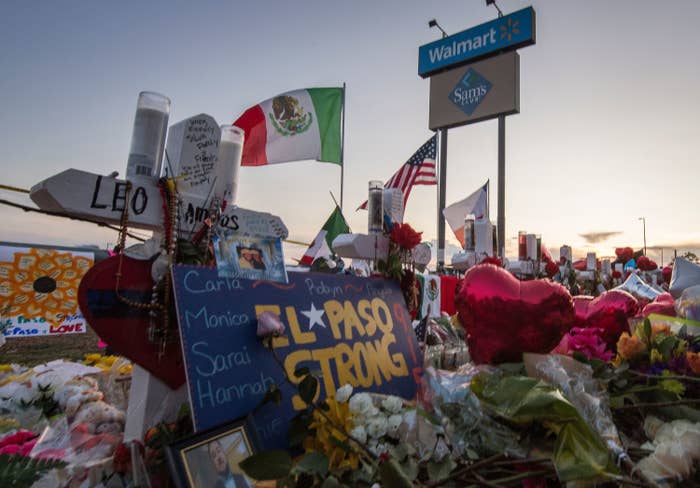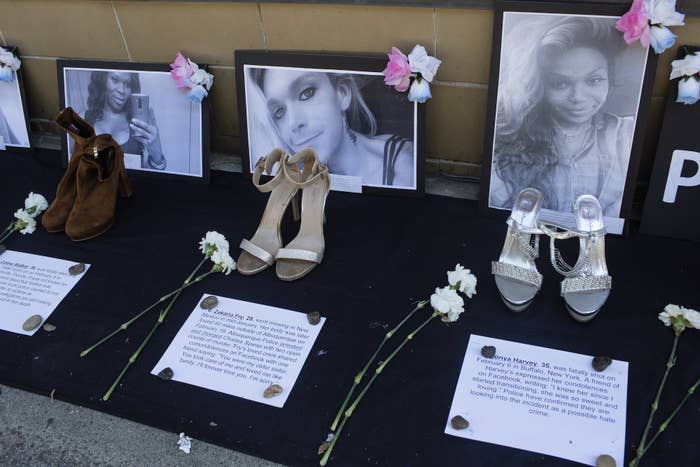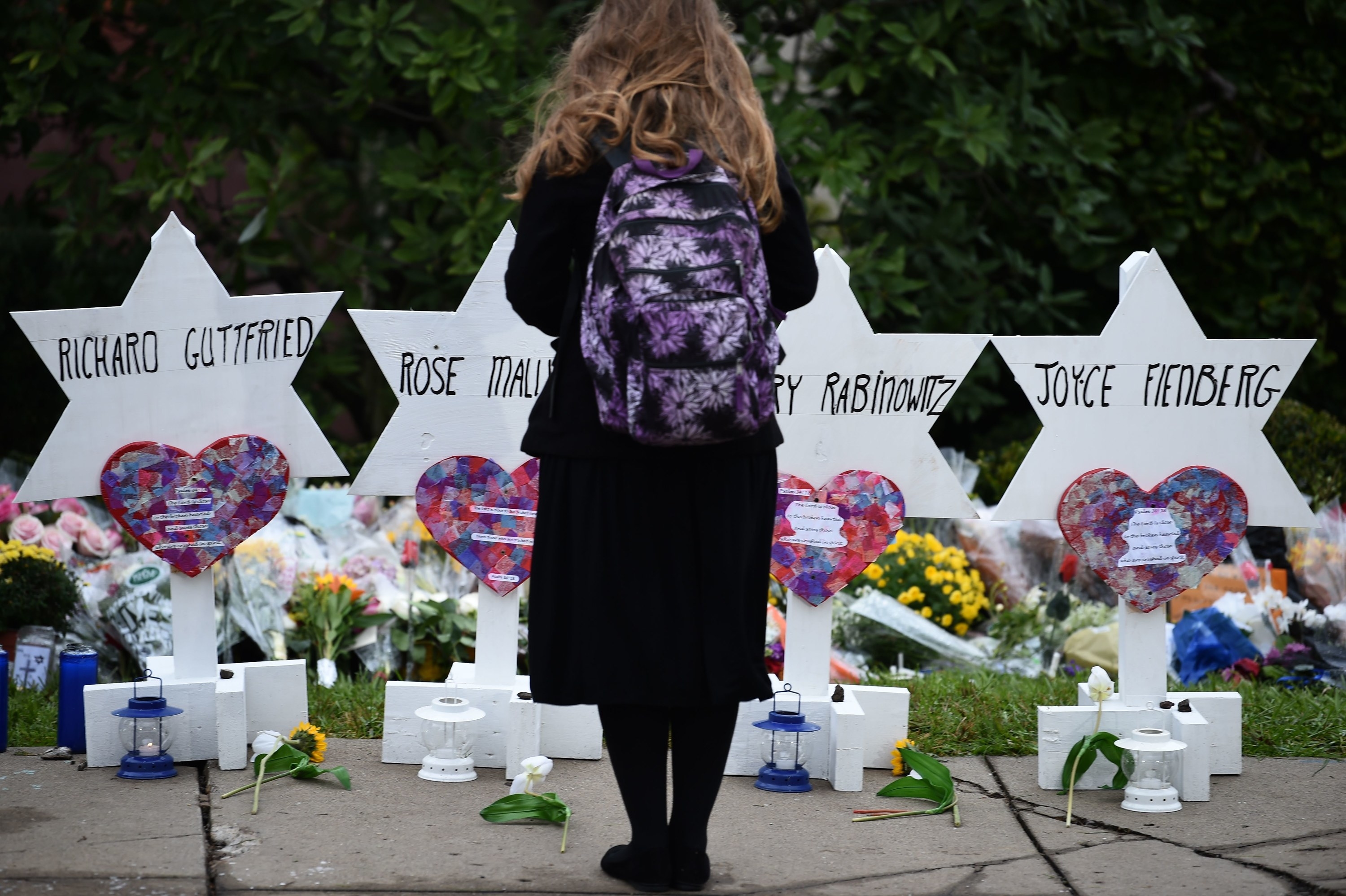
The number of violent hate crimes reported in the United States last year was the highest in 16 years, according to the FBI — but advocacy groups warned that the actual figure is much higher than the official count reported Tuesday.
The Department of Justice defines a hate crime as a “criminal offense against a person or property, motivated in whole or in part by an offender’s bias against a race, religion, disability, sexual orientation, ethnicity, gender, or gender identity.”
Data released Tuesday by the FBI shows that although the total number of reported hate crimes in the United States decreased from 2017 to 2018, the number of offenses against people increased by 12%. Of the 7,120 hate crimes reported to the FBI in 2018, 4,571 were crimes against persons (such as assault, rape, and murder).
Most of the hate crimes — about 60% — were motivated by race, ethnicity, or ancestry bias. The other motivations included religion (19%), sexual orientation (17%), gender identity (2%), disability (2%), and gender (1%).
In particular, attacks against Latinos and transgender people saw a significant increase in 2018, with 485 crimes determined to be anti-Latino — 58 more than in 2017. Since 2016, the number of crimes targeting Latinos has soared by 41%.
“We’re saddened but not shocked that the number of violent hate crimes against Hispanics has increased,” Janet Murguía, president and CEO of the nation's largest Latino civil rights and advocacy organization, UnidosUS, told BuzzFeed News.
“President Trump frequently refers to Latinos in the most hateful and bigoted ways, and words matter,” Murguía said. “Hateful words have hateful consequences, and can result in violence and even death.”
Murguía cited the August mass shooting in El Paso, Texas, which left 22 people dead in what police said was a targeted attack on Mexicans, as an example of these “hateful consequences.”
"President Trump should be aware that in the community’s mind, he bears some responsibility for the increase in hate crimes against Latinos," she said.

The FBI reported 142 hate crimes against transgender people in 2018, an increase of 34% from the year before. LGBTQ activists who spoke with BuzzFeed News said that the Trump administration’s rhetoric and proposed policies against the community likely influenced these rising numbers.
“As our culture grows more and more divisive, fueled largely by an anti-LGBTQ White House, a permission slip has been given for some Americans to act on their worst instincts and to target others,” said Sarah Kate Ellis, president and CEO of GLAAD.
“This report should sound an alarm that we all must do better to create a country where marginalized communities are safe and protected against hate violence. Violent hate crimes against LGBTQ people are a pervasive issue that needs to be addressed by politicians and law enforcement in a bipartisan and urgent way.”
GLAAD was one of several advocacy groups that used the study's release on Tuesday to call for strong legislative action to combat and track hate crimes.
The FBI's annual report is based on hate crime data collected from law enforcement agencies around the country, but experts and advocacy groups say that many, if not most, are not counted. The New York Times found that 87% of the 16,039 law enforcement agencies that submitted data to the FBI in 2018 reported that there were no hate crimes in their jurisdiction that year.
A 2017 federal Bureau of Justice Statistics study reported that Americans experience an average of 250,000 hate crime victimizations each year, far more than the 7,120 reported by the FBI.
A bill in the House of Representatives called the "Khalid Jabara and Heather Heyer National Opposition to Hate, Assault, and Threats to Equality (No Hate) Act" — named in honor of two victims of hate crimes that weren't reported as such to the FBI — would mandate new action to obtain more accurate numbers, such as training officers to recognize hate crimes and setting up reporting hotlines.
"At the end of the day, this data simply isn’t giving us the accurate information we need to effectively counteract hate against targeted communities,” said Sim J. Singh, of the Sikh Coalition in a statement Tuesday. According to the FBI, anti-Sikh hate crimes skyrocketed 200% from 2017 to 2018.

"It’s past time for action. Congress must pass the next generation of common-sense legislation that equips law enforcement to better identify and track hate incidents," Singh said.
The National Disability Rights Network also issued a statement in support of the Jabara-Heyer No Hate Act on Tuesday. According to the FBI, people with disabilities experienced 159 attacks in 2018, a 37% increase over the previous year.
"People with disabilities are often the first victims of extremists and their hate-filled vision of society," said Curt Decker, the group's executive director. "NDRN will continue to work with the many civil rights groups who share our values of community and inclusion for all until hatred, bigotry, and racism are extinguished for good."
Eleven of the 24 hate crime killings reported to the FBI in 2018 were victims of the same attack — a mass shooting at the Tree of Life synagogue in Pittsburgh on Oct. 27, 2018. Sixty percent of all reported religious-based hate crimes from that year were directed against Jews.
“It is unacceptable that Jews and Jewish institutions continue to be at the center of religion-based hate crime attacks,” Anti-Defamation League CEO Jonathan Greenblatt said in a statement Tuesday, urging Congress to take "concrete action" and pass the Jabara-Heyer No Hate Act.
"By improving hate crime training, prevention, best practices, and data collection, we can stem hate crimes nationwide," Greenblatt said. "Our nation cannot address crimes that we are not measuring."
